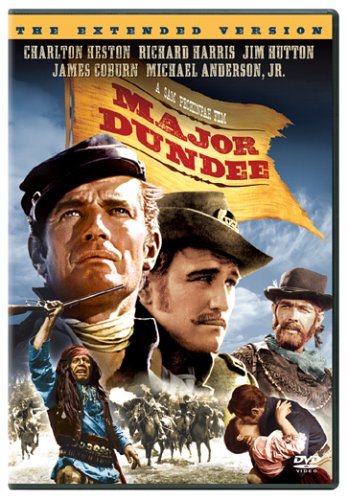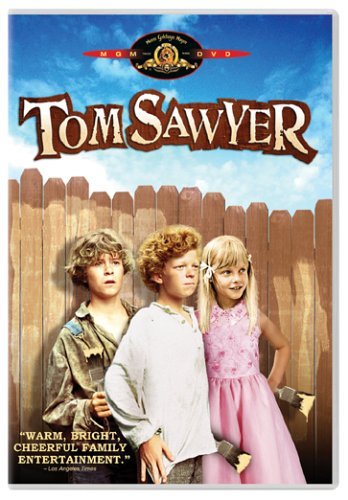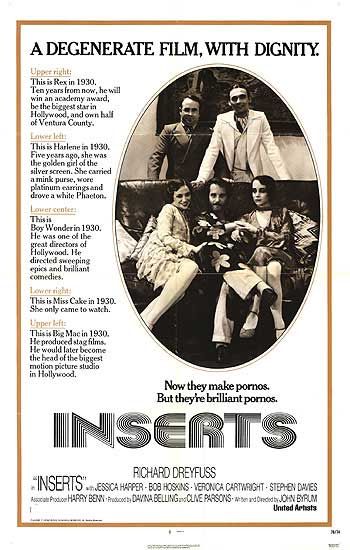

9/20/05
Edition
A Restoration Of MAJOR
proportions
Sony Releases The Expanded MAJOR DUNDEE
Plus: NED AND STACEY, FOUR
FRIENDS, Sherman Bros. and More!
In 1964, Sam Peckinpah -- fresh off the success of his Randolph Scott
western “Ride the High Country”-- was hired by producer
Jerry Bresler to shoot his first big-budget studio picture.

“Major Dundee” starred Charlton Heston as a tough,
uncompromising Union officer guarding a jail full of Confederate
soldiers and other deviants in New Mexico. After a renegade Apache
warrior ransacks a ranch -- killing nearly everyone in its path, from
Union soldiers to young children -- Heston takes charge of tracking him
down by any means necessary, including the recruitment of Confederate
prisoners to join the cavalry. Among the latter is Richard Harris as
one of Heston’s former rivals, who joins The Major, scout James
Coburn, and bugler Michael Anderson, Jr. (who also narrates
Dundee’s tale) as the troops venture into Mexico to dispatch the
Apaches, avoiding French interference along the way.
Originally intended to be a full-blown, three-hour Columbia epic -- a
la “Lawrence of Arabia” -- Peckinpah, Heston and Bresler
watched helplessly during production as the studio cut the budget back
on the movie. The director and producer sparred over all kinds of
problems, and according to Heston, Peckinpah’s off-set vices
resulted in the star taking over the direction of the film for a time.
In the editing room “Major Dundee” became even more of a
jumbled mess. Bresler and the distributor each removed sections of
Peckinpah’s original cut, but according to most experts (notably
“DVD Savant” Glenn Erickson, who authors the new
DVD’s liner notes), the movie was never satisfactorily completed
or even fully formed on the printed page to begin with. Adding insult
to injury was the addition of an inane musical score by Daniele
Amfitheatrof, utilizing a Colonel Bogey-esque theme song by Mitch
Miller & His Sing-Along-Gang that couldn’t have been more out
of place.
Over the years “Major Dundee” has gained a sizable cult
reputation (mainly among Peckinpah aficionados), with fans long hoping
for a restoration that would finally bring all elements of
Peckinpah’s “lost masterpiece” together for the first
time.
Though billed by Sony as “an authentic American classic, at last
presented as its legendary director intended!,” the new, Extended
Edition of MAJOR
DUNDEE (***, 136 mins., PG-13; Sony) is still -- in spite of
considerable restoration efforts -- a flawed film with only
intermittent flashes of brilliance.
Far from a classic, even of its genre, the movie nevertheless offers
some spectacular moments and superb widescreen imagery, along with
strong performances from an excellent cast -- most of whom are poorly
utilized in a script that never seems sure where it’s going or
what precisely it’s trying to say. Is it a profile of
American’s adventurous spirit in the dwindling days of the Civil
War? A commentary on the futility of warfare in general? Even the
“experts” seem divided on what the movie’s point is.
Meanwhile, though some of the supporting characters have more of a
place here (one of the chief criticisms of Columbia’s original
theatrical cut), several still appear and then disappear with no rhyme
or reason (and what exactly is the deal with Senta Berger’s love
interest?).
Still, “Dundee” devotees will find much to rejoice about in
the extended cut: mainly, a brand new score by Christopher Caliendo
that easily tops Amfitheatrof’s often inane original soundtrack.
Caliendo’s music is appropriately dense and bombastic enough that
it doesn’t sound out of place for a mid ‘60s film, whilst
retaining a modern sensibility that makes it far more satisfying than
Amfitheatrof’s work, which is marred by the Mitch Miller march
and a laughably bad synthesizer “stab” whenever the Apaches
appear on-screen. Still, purists can find comfort that
Amfitheatrof’s music is offered as well, though the 5.1 stereo
track (with Caliendo’s soundtrack) is unquestionably more
satisfying than the comparatively pinched original mono mix.
The movie looks superb in Sony’s restoration as well. The 2.35,
16:9-enhanced transfer is exceptional, particularly when you consider
the myriad quality of elements Sony had to work with for the restored
sequences.
For supplements, Sony has compiled a wealth of extra features that have
made this DVD a must-have, regardless of your opinion of the movie.
Several Peckinpah experts join moderator Nick Redman on a commentary
track that, according to Glenn Erickson, was recorded alongside an
as-of-yet unreleased Peckinpah Warner western box-set (hence the
references to other commentaries, and the lack of mention of
Caliendo’s new music). The group discusses the genesis of the
film and how it fits in the Peckinpah canon, and surprisingly are
highly critical of the finished work (most are even dismissive of the
new introduction of Richard Harris’ character).
Some additional deleted footage can be found in surviving footage from
“Knife Fight” and an extended sequence between “Major
Dundee and Teresa,” silent outtakes and a vintage featurette
(“Riding For a Fall”) that profiles one of the film’s
numerous stunts being shot, along with a glimpse at the still-lost
opening Apache attack sequence. There’s also a lengthy excerpt
from a Peckinpah documentary, offering interviews with L.Q. Jones, R.G.
Armstrong, Senta Berger and James Coburn; trailer artwork, poster
stills, an exhibitor promo reel excerpt, and both the original trailer
and one for last year’s limited theatrical re-release.
“Major Dundee: The Extended Cut” isn’t quite what its
packaging promises, since Peckinpah’s original Director’s
Cut -- by all accounts -- wasn’t ever finished. Although not all
of the movie’s lost footage could be located, it’s highly
likely that -- even WITH those scenes restored -- “Major
Dundee” would still be an “incomplete” film.
That said, the 136-minute Extended Version is nevertheless an
important, ambitious attempt at restoring “Major Dundee” as
best as can be. The DVD is chock full of supplements and the movie, in
spite of its shortcomings, is certainly worth a viewing for its brisk
action scenes and excellent performances from Heston and Harris.
For additional, recommended reading, check out Glenn Erickson’s
DVD Savant analysis of the movie here.
Also New From Sony
TOM SAWYER
(***½, 1973). 99 mins., G, MGM/Sony. DVD FEATURES: Full-screen
transfer, 2.0 Dolby Digital surround.
HUCKLEBERRY
FINN (**½, 1974). 114 mins., G, MGM/Sony. DVD FEATURES:
Full-screen transfer, 2.0 Dolby Digital surround.

Hugely disappointing DVD presentations of Arthur P. Jacobs’ two
Sherman Brothers musicals, here presented in cropped pan-and-scan
versions. Subsequently, instead of seeing the wide Panavision frame of
both “Tom Sawyer” and “Huckleberry Finn,” we
get virtually half of the original image, which takes away a great deal
of each film’s impact.
On their own terms, the two movies are highly entertaining, especially
the 1973 “Tom Sawyer.” Starring “Family
Affair”’s Johnny Whittaker as Tom, Jodie Foster as Becky,
future Clark Kent Jeff East as Huck Finn, and veterans Celeste Holm and
Warren Oates, director Don Taylor’s movie benefits from a
spirited Sherman Brothers score -- marvelously adapted by John Williams
-- and exceptional scope cinematography.
“Huckleberry Finn” was filmed the subsequent year, and
it’s a somewhat disjointed, inferior follow-up, with East
reprising Huck Finn and Paul Winfield co-starring as Jim, the runaway
slave our hero befriends and attempts to help. Director J. Lee Thompson
proved to be a less-than-satisfactory replacement for Taylor, and
what’s worse, Fred Werner proved to be a less than stellar
replacement for Williams, who by 1974 was well on his way to major
scoring assignments like “The Towering Inferno.” The movie,
though, isn’t a total loss, though shorn of its Panavision
dimensions, both movies appear more plastic and
“‘70s”-ish than they ought to be.
Fans of the movies are urged to track down Image/MGM’s 1994
laserdisc releases, which not only include Widescreen Letterbox
transfers but numerous supplements on “Tom Sawyer,”
including rehearsal footage of Williams with the Shermans, plus a
commentary track with the Shermans and Don Taylor -- none of which,
sadly, have been carried over to the new DVDs.
NED AND STACEY: THE
COMPLETE FIRST SEASON (1995-96, 535 mins., Sony): Before Debra
Messing became a big hit on “Will and Grace” and Thomas
Haden Church earned kudos in “Sideways,” the duo starred in
this appealing, under-rated Fox sitcom.
 The set-up is,
admittedly, a bit forced: Ned (Haden Church) is an arrogant, acerbic
businessman who marries would-be journalist Stacey (Messing) to curry
favor with his bosses and gain a promotion in the process. Despite the
fact that the duo hardly know each other, Stacey agrees, mainly because
she needs a place to live. From there, the would-be couple engage in a
battle of the sexes, hang out with pals Greg Germann and Nadia Dajani,
and spar over pretty much everything.
The set-up is,
admittedly, a bit forced: Ned (Haden Church) is an arrogant, acerbic
businessman who marries would-be journalist Stacey (Messing) to curry
favor with his bosses and gain a promotion in the process. Despite the
fact that the duo hardly know each other, Stacey agrees, mainly because
she needs a place to live. From there, the would-be couple engage in a
battle of the sexes, hang out with pals Greg Germann and Nadia Dajani,
and spar over pretty much everything.
Though some view the show as merely a warm-up for Messing’s
subsequent success with “Will and Grace,” “Ned and
Stacey” is, for the most part, a funny, well-written sitcom with
an edge. The series only lasted two seasons and never did the expected
by pairing the two romantically (something that could well have been
developed if the show wasn’t cancelled prematurely), and as a
result focuses strictly on the comedic interplay between its cast.
Haden Church and Messing work great together here, and Germann and
Dajani are frequently hilarious as their equally bickering friends.
Sony’s three-disc set offers solid full-screen transfers with
unedited broadcast-length shows. Not only that, but the studio has
thrown in extras to compliment the package: a 20-minute retrospective
offers new interviews with the stars, while creator Michael J. Weithorn
offers a commentary on the pilot episode. Like Messing,
Weithorn’s next show (“The King of Queens”) would
become a full-blown success, but “Ned and Stacey” still
offers plenty for its cast and creators to be proud of. This piece of
fluff is highly appealing on its own terms and worthy of a second look
by those who might have missed it the first time around.
FOUR FRIENDS (***,
1981, 115 mins., R; MGM/Sony): Oscar-winning writer Steve Tesich
attempted to follow the success of “Breaking Away” with
this ambitious but flawed film from director Arthur Penn. Spanning
several decades, “Four Friends” tells the story of a
Yugoslav immigrant (the under-rated Craig Wasson from “Ghost
Story”) who experiences the turbulent ‘60s with the company
of three best friends: Jim Metzler, Michael Huddleston, and
free-spirited Jodi Thelen. Some insightful passages and powerful
moments are contrasted by almost absurdly melodramatic moments that
don’t work, along with some equally over-the-top acting from
Thelen. Still, “Four Friends” -- in its best moments -- is
an evocative, heartfelt piece, with the expected political and social
commentary thankfully dialed down in favor of strong character
development. MGM/Sony’s DVD offers an excellent 16:9 transfer of
the 1981 film, along with a clear mono soundtrack and the film’s
pretentious original trailer.
 INSERTS (**, 1975, 115 mins., NC-17; MGM/Sony):
Now here’s an obscure offering perfect for curious cinephiles.
Shortly after appearing in “Jaws,” Richard Dreyfuss starred
in this pretentious, sleazy, but somehow still compelling film as
“Boy Wonder,” a downtrodden filmmaker in the 1930s who
couldn’t make the transition from silents to talkies. Now saddled
with making one of the cinema’s earliest excursions into erotica,
“Boy Wonder” has to juggle an icy leading lady (Veronica
Cartwright), a gangster (Bob Hoskins) and his moll (Jessica Harper),
and “Rex the Wonder Dog” (Stephen Davies) in order to crank
his production out. Originally X-rated (and still NC-17 by
today’s standards), “Inserts” looks and feels like a
filmed play, even though writer-director John Byrum’s script was
penned for the screen. The movie is fun and shocking for a while, but
eventually sinks under Byrum’s pretentiousness and the plastic,
‘70s dialogue and mannerisms that date the picture badly. Still,
“Inserts” is a film that’s been out of circulation
for years, and Dreyfuss aficionados may find MGM/Sony’s DVD of
interest: the full-length 115 minute international cut is included here
(the U.S. apparently received a shortened R-rated version), along with
a theatrical trailer. The 16:9 transfer and mono sound are both
satisfactory for a movie that’s been on the studio shelf for
many, many years.
INSERTS (**, 1975, 115 mins., NC-17; MGM/Sony):
Now here’s an obscure offering perfect for curious cinephiles.
Shortly after appearing in “Jaws,” Richard Dreyfuss starred
in this pretentious, sleazy, but somehow still compelling film as
“Boy Wonder,” a downtrodden filmmaker in the 1930s who
couldn’t make the transition from silents to talkies. Now saddled
with making one of the cinema’s earliest excursions into erotica,
“Boy Wonder” has to juggle an icy leading lady (Veronica
Cartwright), a gangster (Bob Hoskins) and his moll (Jessica Harper),
and “Rex the Wonder Dog” (Stephen Davies) in order to crank
his production out. Originally X-rated (and still NC-17 by
today’s standards), “Inserts” looks and feels like a
filmed play, even though writer-director John Byrum’s script was
penned for the screen. The movie is fun and shocking for a while, but
eventually sinks under Byrum’s pretentiousness and the plastic,
‘70s dialogue and mannerisms that date the picture badly. Still,
“Inserts” is a film that’s been out of circulation
for years, and Dreyfuss aficionados may find MGM/Sony’s DVD of
interest: the full-length 115 minute international cut is included here
(the U.S. apparently received a shortened R-rated version), along with
a theatrical trailer. The 16:9 transfer and mono sound are both
satisfactory for a movie that’s been on the studio shelf for
many, many years.
NEXT TIME: THE LONGEST YARD and More! Don't
forget
to drop in
on the official Aisle Seat Message
Boards, direct
any emails to the
link
above and
we'll catch you
then. Cheers!

VISITORS
TO ANDYFILM.COM

All Reviews, Site and Design by Andy
Dursin








 The set-up is,
admittedly, a bit forced: Ned (Haden Church) is an arrogant, acerbic
businessman who marries would-be journalist Stacey (Messing) to curry
favor with his bosses and gain a promotion in the process. Despite the
fact that the duo hardly know each other, Stacey agrees, mainly because
she needs a place to live. From there, the would-be couple engage in a
battle of the sexes, hang out with pals Greg Germann and Nadia Dajani,
and spar over pretty much everything.
The set-up is,
admittedly, a bit forced: Ned (Haden Church) is an arrogant, acerbic
businessman who marries would-be journalist Stacey (Messing) to curry
favor with his bosses and gain a promotion in the process. Despite the
fact that the duo hardly know each other, Stacey agrees, mainly because
she needs a place to live. From there, the would-be couple engage in a
battle of the sexes, hang out with pals Greg Germann and Nadia Dajani,
and spar over pretty much everything. INSERTS (**, 1975, 115 mins., NC-17; MGM/Sony):
Now here’s an obscure offering perfect for curious cinephiles.
Shortly after appearing in “Jaws,” Richard Dreyfuss starred
in this pretentious, sleazy, but somehow still compelling film as
“Boy Wonder,” a downtrodden filmmaker in the 1930s who
couldn’t make the transition from silents to talkies. Now saddled
with making one of the cinema’s earliest excursions into erotica,
“Boy Wonder” has to juggle an icy leading lady (Veronica
Cartwright), a gangster (Bob Hoskins) and his moll (Jessica Harper),
and “Rex the Wonder Dog” (Stephen Davies) in order to crank
his production out. Originally X-rated (and still NC-17 by
today’s standards), “Inserts” looks and feels like a
filmed play, even though writer-director John Byrum’s script was
penned for the screen. The movie is fun and shocking for a while, but
eventually sinks under Byrum’s pretentiousness and the plastic,
‘70s dialogue and mannerisms that date the picture badly. Still,
“Inserts” is a film that’s been out of circulation
for years, and Dreyfuss aficionados may find MGM/Sony’s DVD of
interest: the full-length 115 minute international cut is included here
(the U.S. apparently received a shortened R-rated version), along with
a theatrical trailer. The 16:9 transfer and mono sound are both
satisfactory for a movie that’s been on the studio shelf for
many, many years.
INSERTS (**, 1975, 115 mins., NC-17; MGM/Sony):
Now here’s an obscure offering perfect for curious cinephiles.
Shortly after appearing in “Jaws,” Richard Dreyfuss starred
in this pretentious, sleazy, but somehow still compelling film as
“Boy Wonder,” a downtrodden filmmaker in the 1930s who
couldn’t make the transition from silents to talkies. Now saddled
with making one of the cinema’s earliest excursions into erotica,
“Boy Wonder” has to juggle an icy leading lady (Veronica
Cartwright), a gangster (Bob Hoskins) and his moll (Jessica Harper),
and “Rex the Wonder Dog” (Stephen Davies) in order to crank
his production out. Originally X-rated (and still NC-17 by
today’s standards), “Inserts” looks and feels like a
filmed play, even though writer-director John Byrum’s script was
penned for the screen. The movie is fun and shocking for a while, but
eventually sinks under Byrum’s pretentiousness and the plastic,
‘70s dialogue and mannerisms that date the picture badly. Still,
“Inserts” is a film that’s been out of circulation
for years, and Dreyfuss aficionados may find MGM/Sony’s DVD of
interest: the full-length 115 minute international cut is included here
(the U.S. apparently received a shortened R-rated version), along with
a theatrical trailer. The 16:9 transfer and mono sound are both
satisfactory for a movie that’s been on the studio shelf for
many, many years.